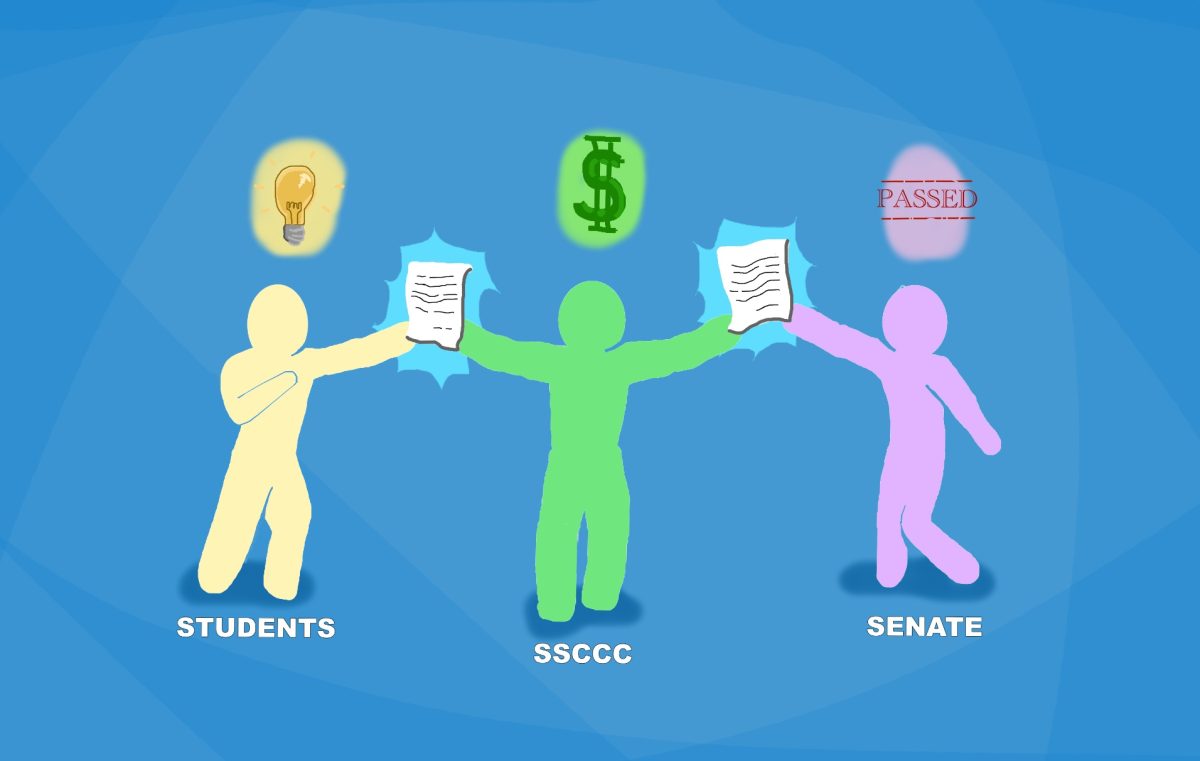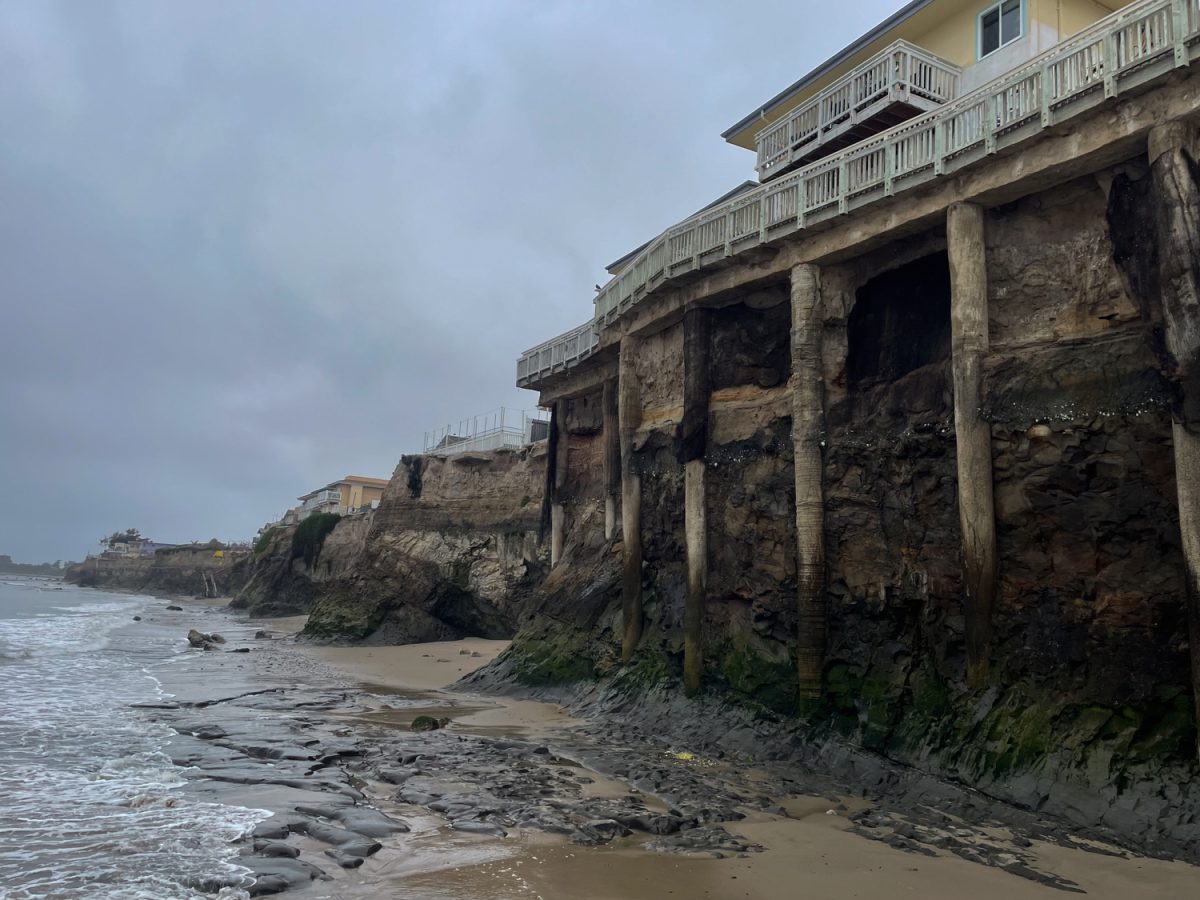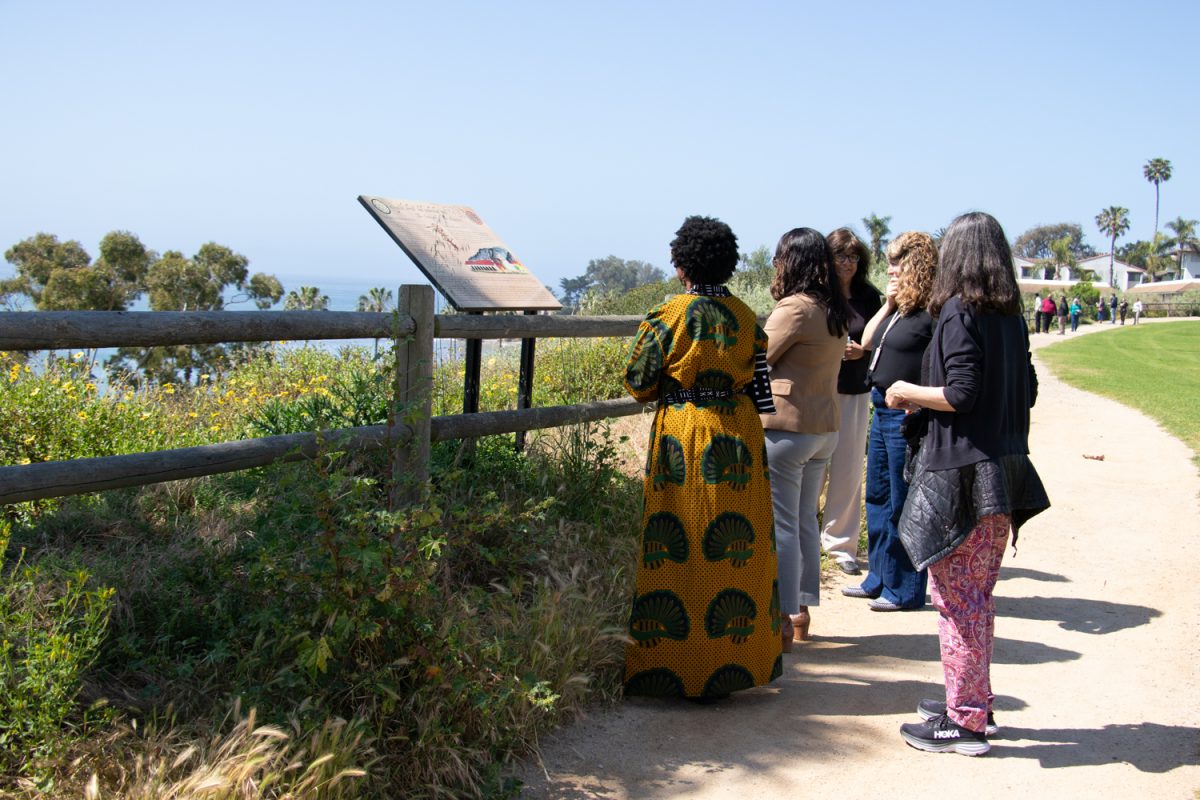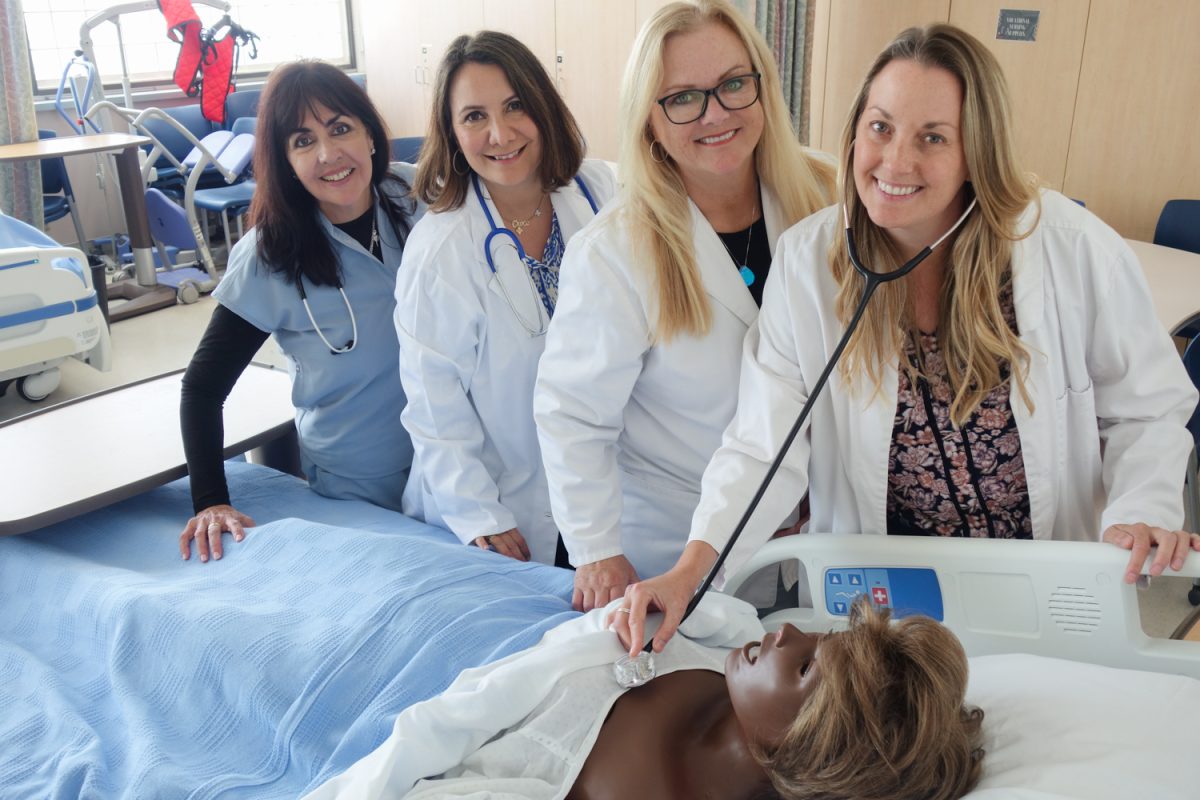Lieutenant Tuan Phan and officer Tomas A. Gitlin made their way through the rainy day traffic to speak in the Business and Communication Forum at Santa Barbara City College Friday.
Phan and Gitlin are both former naval submarine nuclear power plant operators who came to City College to discuss the Nuclear Propulsion Officer Candidate program (NUPOC), their grandiose experiences as naval officers, and the benefits offered by the Navy to enlistees. The event was organized and hosted by the SBCC Robotics Club.
“With the Navy, I’ve been all over,” said Phan. “Western Pacific, Japan, Singapore, South Korea you name it. I’ve seen a lot and done a lot of things that I can’t really talk about, but you can get to that point.”
The audience of nearly 20 students and one math professor huddled closely in the first few rows of the auditorium to listen to Phan and Gitlin, who started by sharing their educational backgrounds. Gitlin earned his Bachelor of Applied Science and Nuclear Engineering in Technology from Thomas Edison University in New Jersey, and has been in the Navy for nine years. Phan earned his Bachelor of Chemical Engineering from University of New Mexico, and has been in the Navy for eight years. “It’s a long and rewarding process,” Phan said.
They clarified that although it helps, it is not mandatory to have majored in engineering to work in nuclear power and engineering in the Navy. Mostly, said Phan, “the head of nuclear engineering, who will be conducting your interview, wants to see how your mind works, if it works like an engineer.”
The first image Phan displayed on the projector was of dollar signs — 15 of them to be exact. That number is symbolic of the $15,000 bonus one will receive upon acceptance into the nuclear program. That bonus is only one of the many perks the program offers.
Phan and Gitlin continued to explain that once you graduate with your degree and are accepted, you begin officer training with a government sergeant and the Marine Corps. After physical and nuclear training is completed, field work and the chance to explore follow.
“Imagine a group of 30-60, 18-20-year-olds operating a nuclear power plant, or a team of 11 people in charge of a nuclear plant on a submarine,” said Gitlin.
The officers then explained that the nuclear power on a submarine comes from turning heat into steam in order to provide propulsion. Though adventure comes with the territory, an extremely high standard of precaution and knowledge is expected and maintained.
“Everything we do is theory based, almost always pertaining to physics, and we have to know why, theoretically, we do everything we do,” Gitlin said. “We need to know why we turn that valve or flip that switch.”
Phan shared a joke well-known throughout the naval nuclear division, “the standard in the Navy is perfection, and we have to be above standards.”
Phan and Gitlin both agreed that in the Navy you never stop learning, and the respect you hold for yourself and receive from others through that experience is immense.
“At this point I can decide to do anything,” said Phan.






